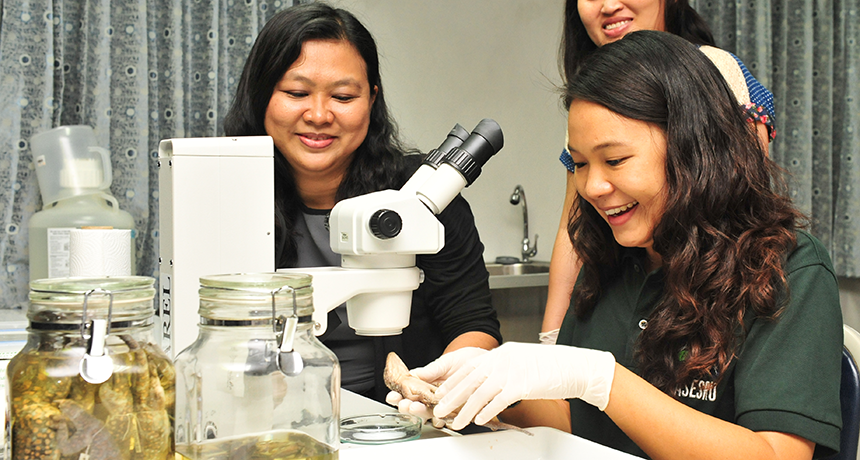Questions for ‘Think you’re not biased? Think again’

On average, women trained in the sciences have more difficulty than men in finding jobs and getting promotions.
USAID Asia/Flickr (CC BY-NC 2.0)

On average, women trained in the sciences have more difficulty than men in finding jobs and getting promotions.
USAID Asia/Flickr (CC BY-NC 2.0)